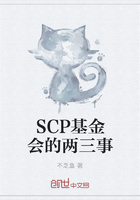Now of things that cause motion or suffer motion, to some the motion is accidental, to others essential: thus it is accidental to what merely belongs to or contains as a part a thing that causes motion or suffers motion, essential to a thing that causes motion or suffers motion not merely by belonging to such a thing or containing it as a part.
Of things to which the motion is essential some derive their motion from themselves, others from something else: and in some cases their motion is natural, in others violent and unnatural. Thus in things that derive their motion from themselves, e.g. all animals, the motion is natural (for when an animal is in motion its motion is derived from itself): and whenever the source of the motion of a thing is in the thing itself we say that the motion of that thing is natural. Therefore the animal as a whole moves itself naturally: but the body of the animal may be in motion unnaturally as well as naturally: it depends upon the kind of motion that it may chance to be suffering and the kind of element of which it is composed. And the motion of things that derive their motion from something else is in some cases natural, in other unnatural: e.g. upward motion of earthy things and downward motion of fire are unnatural. Moreover the parts of animals are often in motion in an unnatural way, their positions and the character of the motion being abnormal. The fact that a thing that is in motion derives its motion from something is most evident in things that are in motion unnaturally, because in such cases it is clear that the motion is derived from something other than the thing itself. Next to things that are in motion unnaturally those whose motion while natural is derived from themselves-e.g. animals-make this fact clear: for here the uncertainty is not as to whether the motion is derived from something but as to how we ought to distinguish in the thing between the movent and the moved. It would seem that in animals, just as in ships and things not naturally organized, that which causes motion is separate from that which suffers motion, and that it is only in this sense that the animal as a whole causes its own motion.
The greatest difficulty, however, is presented by the remaining case of those that we last distinguished. Where things derive their motion from something else we distinguished the cases in which the motion is unnatural: we are left with those that are to be contrasted with the others by reason of the fact that the motion is natural. It is in these cases that difficulty would be experienced in deciding whence the motion is derived, e.g. in the case of light and heavy things. When these things are in motion to positions the reverse of those they would properly occupy, their motion is violent: when they are in motion to their proper positions-the light thing up and the heavy thing down-their motion is natural; but in this latter case it is no longer evident, as it is when the motion is unnatural, whence their motion is derived. It is impossible to say that their motion is derived from themselves: this is a characteristic of life and peculiar to living things. Further, if it were, it would have been in their power to stop themselves (I mean that if e.g. a thing can cause itself to walk it can also cause itself not to walk), and so, since on this supposition fire itself possesses the power of upward locomotion, it is clear that it should also possess the power of downward locomotion. Moreover if things move themselves, it would be unreasonable to suppose that in only one kind of motion is their motion derived from themselves. Again, how can anything of continuous and naturally connected substance move itself? In so far as a thing is one and continuous not merely in virtue of contact, it is impassive: it is only in so far as a thing is divided that one part of it is by nature active and another passive.
Therefore none of the things that we are now considering move themselves (for they are of naturally connected substance), nor does anything else that is continuous: in each case the movent must be separate from the moved, as we see to be the case with inanimate things when an animate thing moves them. It is the fact that these things also always derive their motion from something: what it is would become evident if we were to distinguish the different kinds of cause.















